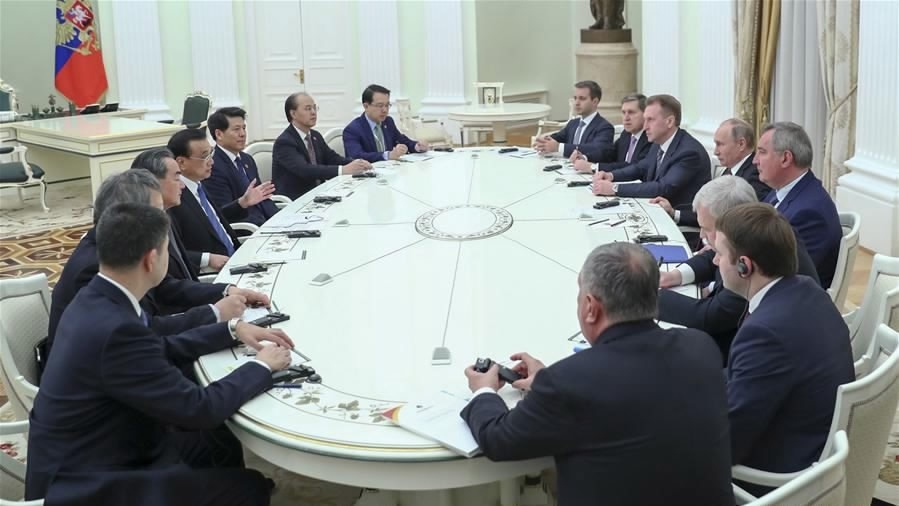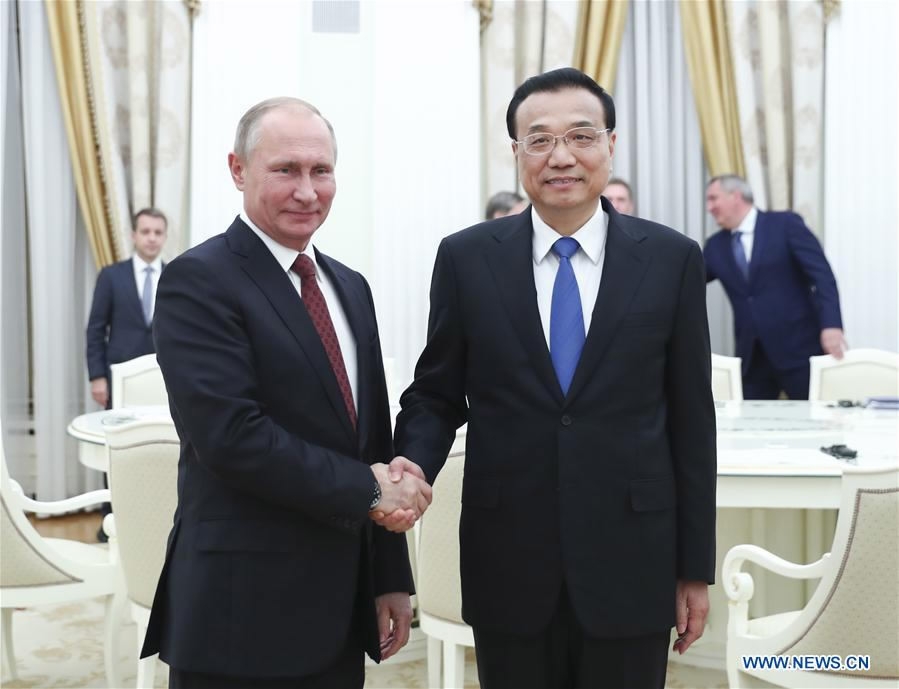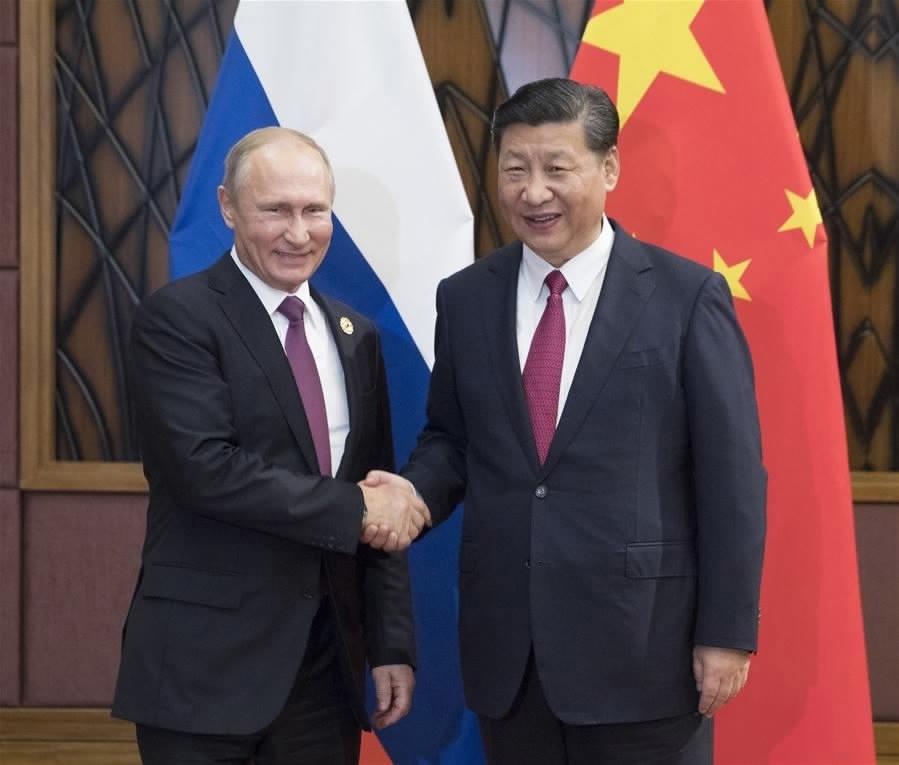
Opinions
14:58, 30-Nov-2017
Opinion: Beijing and Moscow – from friends to enemies to ‘partners’?
Guest commentary by Pavel Felgenhauer

Moscow and Beijing were once close friends and allies during the 1950s and then became bitter enemies for almost three decades, until the end of the Cold War.
Most of Russia's current top military and political leadership entered government service in the late 1970s or 1980s when the People's Republic of China (PRC) was seen as the main enemy in Asia and an essential ally of the grand global opponent – the US.
The Russian public had equally been heavily indoctrinated to fear the "Chinese threat" and the suspicions connected to those fears are still present in Russian society today. The love/hate relationship with the PRC has been a constant negative backdrop of the pragmatic partnership that began to develop after 1990.

Chinese Premier Li Keqiang meets with Russian President Vladimir Putin at the Kremlin in Moscow, Russia, on November 29, 2017. /Xinhua Photo
Chinese Premier Li Keqiang meets with Russian President Vladimir Putin at the Kremlin in Moscow, Russia, on November 29, 2017. /Xinhua Photo
Following the collapse of the USSR and the ensuing acute social, political and economic havoc, Russia was happy to buy vast amounts of Chinese consumer produce in exchange for raw materials and Soviet-developed military high-tech. This was not an alliance of any sorts, but a purely pragmatic quid pro quo.
Well into the mid 2000s, Moscow was attempting to establish a close strategic partnership with the US and its European and Asian allies. It was too engaged in internal political and economic strife, dealing with a financial meltdown in 1998 and with separatist/Islamist uprisings in the North Caucasus. The Russian military hierarchy essentially believed China was an existential threat. Talk of the future possibility of China somehow inhabiting and eventually taking over Siberia and the Far Eastern Pacific provinces continued to be an important issue in the internal Russian discourse.

Chinese President Xi Jinping (R) meets with his Russian counterpart Vladimir Putin on the sidelines of the APEC meeting in Da Nang, Vietnam, on November 10, 2017. /Xinhua Photo
Chinese President Xi Jinping (R) meets with his Russian counterpart Vladimir Putin on the sidelines of the APEC meeting in Da Nang, Vietnam, on November 10, 2017. /Xinhua Photo
Only after 2005, when all outstanding Sino-Russian border issues were successfully settled, did the pragmatic partnership begin to evolve into something more than simple quid pro quo. It turned out Russia and the PRC had more common interests than just trade in consumer goods, energy and raw materials.
As China rapidly developed into a world economic powerhouse, it turned into a source of strategically important components, materials and modern technologies, especially after 2014, when Russia's ongoing discord with the West over Ukraine, Crimea and the Donbas facilitated the imposition of punitive sanctions that greatly prohibited the transfer of modern technologies and cut the country's source of investment from the West.
Today Russia and China are closely coordinating their foreign policy activities in the UN as well as the Korean and Syrian crises. Chinese President Xi Jinping's plan for creating a New Silk Road from China to Europe, also known as the "Belt &Road Initiative" (BRI), is more than an important opportunity to develop commerce. Projecting wealth and development by means of the Silk Road Economic Belt may be the best way to prevent the expansion of jihadists insurgencies from the Middle East into Central Asia, where Russia has highly important strategic and military interests.
A decade or two ago, BRI would have been seen with suspicion in Moscow, but now the very real jihadist terrorist menace that has been a longtime Russian nightmare and which may equally undermine Russian and Chinese vital interests, is another link binding Moscow and Beijing into an increasingly close strategic partnership.
(The author is a columnist with Novaya Gazeta in Moscow and nonresident senior research fellow with Jamestown Foundation in Washington. The author’s opinions are his own and do not necessarily reflect those of CGTN.)

SITEMAP
Copyright © 2018 CGTN. Beijing ICP prepared NO.16065310-3
Copyright © 2018 CGTN. Beijing ICP prepared NO.16065310-3